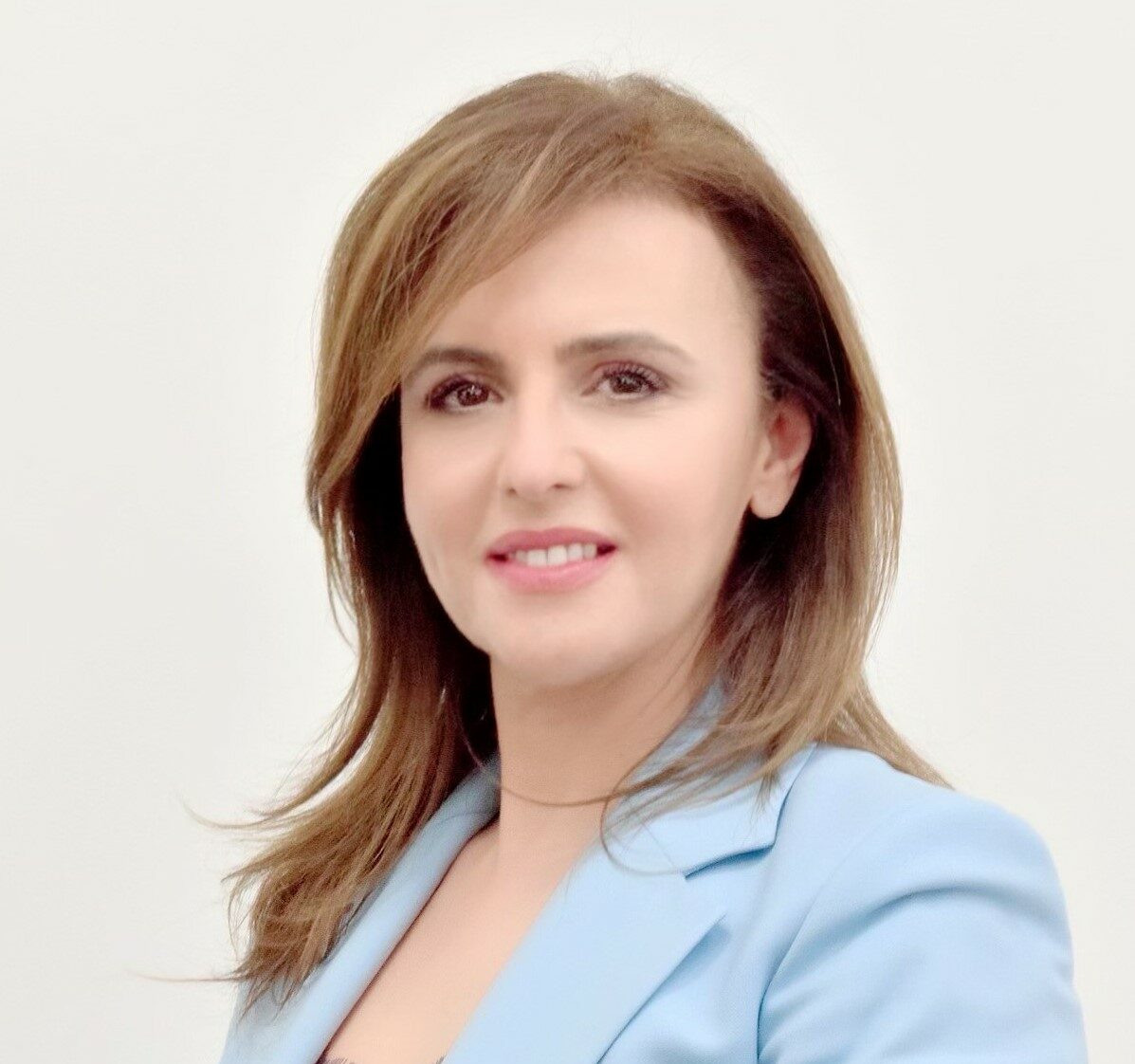touchTALKS COVID-19 vaccination: What have we learned and what more can we do to address vaccine inequity in Africa and the Middle East?
Watch experts in infectious diseases discuss the issue of vaccine inequity in COVID-19 vaccination in Africa and the Middle East.
What progress has been made in addressing COVID-19 vaccine equity issues in Africa?
Dr Amani discusses COVID-19 vaccine inequity across Africa, strategies to address inequity and the role of healthcare workers.
view bio and disclosures 1/6 Next ChapterHow can communication with the public in Africa about COVID-19 vaccines be improved?
Dr Amani summarizes real-world safety and efficacy data for COVID-19 vaccines in Africa and strategies to improve communication between healthcare workers and the public on vaccination.
view bio and disclosures 2/6 Next ChapterIf vaccine inequity is not improved in Africa, what are the consequences?
Dr Amani highlights the importance of addressing vaccine inequity across Africa, including the role of booster vaccinations.
view bio and disclosures 3/6 Next ChapterWhat progress has been made in addressing COVID-19 vaccine equity issues in the Middle East?
Prof. Melhem describes the barriers to COVID-19 vaccination in the Middle East and the role of healthcare workers in encouraging vaccine uptake.
view bio and disclosures 4/6 Next ChapterHow can communication with the public in the Middle East about COVID-19 vaccines be improved?
Prof. Melhem discusses the key safety and efficacy data for COVID-19 vaccines in the Middle East and strategies to encourage vaccine uptake through effective communication with the public.
view bio and disclosures 5/6 Next ChapterIf vaccine equity is not improved in the Middle East, what are the consequences?
Prof. Melhem highlights the consequences of vaccine inequity in the Middle East and the importance of booster vaccinations.
view bio and disclosures 6/6 Take CE/CME TestOverview & Learning Objectives
Overview
In this activity, experts from Africa and the Middle East address the issue of vaccine inequity in COVID-19 vaccination, including the consequences of vaccine inequity and improving communication with the public.
This activity is jointly provided by USF Health and touchIME.
Target Audience
Infectious disease specialists, respiratory disease specialists and primary care physicians involved in the management of COVID-19 infection.
Disclosures
USF Health adheres to the Standards for Integrity and Independence in Accredited Continuing Education. All individuals in a position to influence content have disclosed to USF Health any financial relationship with an ineligible organization. USF Health has reviewed and mitigated all relevant financial relationships related to the content of the activity. The relevant relationships are listed below. All individuals not listed have no relevant financial relationships.
Faculty
Dr Adidja Amani has no interests/relationships or affiliations to disclose in relation to this activity.
Prof. Nada Melhem has no interests/relationships or affiliations to disclose in relation to this activity.
Content Reviewer
Sally F Alrabaa, MD, has no relevant financial relationships to disclose.
Touch Medical Contributors
Sola Neunie has no financial interests/relationships or affiliations in relation to this activity.
Samantha Waite discloses employee or independent contractor relationship with Lucid Group. (Relationship Terminated).
USF Health Office of Continuing Professional Development and touchIME staff have no financial interests/relationships or affiliations in relation to this activity.
Requirements for Successful Completion
In order to receive credit for this activity, participants must review the content and complete the post-test and evaluation form. Statements of credit are awarded upon successful completion of the post-test and evaluation form.
If you have questions regarding credit please contact cpdsupport@usf.edu.
Accreditations
Physicians
This activity has been planned and implemented in accordance with the accreditation requirements and policies of the Accreditation Council for Continuing Medical Education (ACCME) through a joint providership of USF Health and touchIME. USF Health is accredited by the ACCME to provide continuing medical education for physicians.
USF Health designates this enduring material for a maximum of 1.25 AMA PRA Category 1 CreditTM. Physicians should claim only the credit commensurate with the extent of their participation in the activity.
The European Union of Medical Specialists (UEMS) – European Accreditation Council for Continuing Medical Education (EACCME) has an agreement of mutual recognition of continuing medical education (CME) credit with the American Medical Association (AMA). European physicians interested in converting AMA PRA Category 1 CreditTM into European CME credit (ECMEC) should contact the UEMS (www.uems.eu).
Advanced Practice Providers
Physician Assistants may claim a maximum of 1.25 Category 1 credits for completing this activity. NCCPA accepts AMA PRA Category 1 CreditTM from organizations accredited by ACCME or a recognized state medical society.
The AANPCP accepts certificates of participation for educational activities approved for AMA PRA Category 1 CreditTM by ACCME-accredited providers. APRNs who participate will receive a certificate of completion commensurate with the extent of their participation.
Date of original release: 4 October 2023. Date credits expire: 4 October 2024.
If you have any questions regarding credit please contact cpdsupport@usf.edu.
Learning Objectives
After watching this activity, participants should be better able to:
- Discuss the role of HCWs in addressing vaccine equity issues in Africa and the Middle East
- Recall the key safety and efficacy data for COVID-19 vaccines
- Summarize best practice for sharing information on vaccine effectiveness with the public in Africa and the Middle East
- Explain the need for higher vaccine uptake and the implications of not achieving this, locally and globally
Faculty & Disclosures

Dr Adidja Amani
University of Yaoundé I, Yaoundé, Cameroon
Dr Adidja Amani is a highly experienced senior public health specialist, vaccinologist, university lecturer and researcher, renowned for her contributions in designing, implementing and evaluating disease control programmes at national and international levels. With over 15 years of expertise, she joined the World Health Organization (WHO) African Region in February 2022 to provide support to the COVID-19 vaccine rollout.
In her current role, Dr Amani leads technical support for the global Covid-19 Vaccine Delivery Partnership in five countries: Kenya, Gabon, Central African Republic, Côte d’Ivoire and Cameroon. Dr Amani works closely with the Country Support Team and collaborates with organizations such as United Nations Children’s Fund, WHO, Africa Centres for Disease Control and Prevention, United States Agency for International Development and GAVI, the Vaccine Alliance, aiming for the successful delivery of COVID-19 vaccines.
Since the onset of the COVID-19 pandemic in January 2020, Dr Amani has played a pivotal role in the overall response to the crisis. Initially serving as the director of vaccination at the Ministry of Public Health of Cameroon, she later joined WHO to assist countries in their preparedness, deployment and delivery of COVID-19 vaccines.
Dr Amani is a distinguished Fulbright Scholar and a Mandela Washington Fellow for Young African Leaders. She holds degrees from the University of Yaoundé I in Cameroon, University of Siena in Italy, Boston University, Virginia Commonwealth University and Georgia State University in the USA.
Dr Adidja Amani has no interests/relationships or affiliations to disclose in relation to this activity.

Prof. Nada Melhem
American University of Beirut, Beirut, Lebanon
Prof. Nada Melhem is a professor of infectious diseases and microbiology (virology and immunology) at the Faculty of Health Sciences, American University of Beirut, Lebanon. Prof. Melhem is currently the director of the Division of Health Professions and the chair of the Medical Laboratory Sciences Program at the Faculty of Health Sciences.
Prof. Melhem has developed a transdisciplinary and translational research programme addressing viral immunopathogenesis and the epidemiology of viruses, and their impact on global human health. Prof. Melhem’s research programme focuses on human immunodeficiency virus type 1 and viral diarrhoeal diseases, specifically noroviruses and COVID-19. Prof. Melhem is currently leading the SARS-CoV-2 National Surveillance Genomic Program for healthcare workers and hospitalized patients.
Prof. Melhem is an elected council member of the International Society for Infectious Diseases and serves on the World Health Organization (WHO) SARS-CoV-2 Evolution Technical Advisory Group. She is also a member of the National Committee for Communicable Diseases, serving as a scientific advisor to the minister of public health and the director general of the ministry in Lebanon. Prof. Melhem serves as a member of the national COVID-19 Crisis Management Committee in Lebanon, the WHO COVID-19 Epidemiology Technical Advisory Group and Technical Advisory Group on SARS-CoV-2 Virus Evolution. She is also the representative of low-resource settings on rapid evidence assessment of drug candidates of the Coalition for Equitable ResearCh in Low-resource sEttings (CERCLE), previously COVID-19 Clinical Research Coalition. Since the beginning of the COVID-19 pandemic, Prof. Melhem has served on the COVID-19 Expert Committee at the American University of Beirut.
Prof. Nada Melhem has no interests/relationships or affiliations to disclose in relation to this activity.

REGISTER NOW FOR FREE ACCESS TO
- 1000+ topical and insightful peer-reviewed journal articles
- 100+ hours of bite-sized congress highlights
- 10 major therapy areas packed with the latest scientific advances
- 150+ specialties offering learn-on-the-go medical education
- + Concise email updates and newsletters so you never miss out


